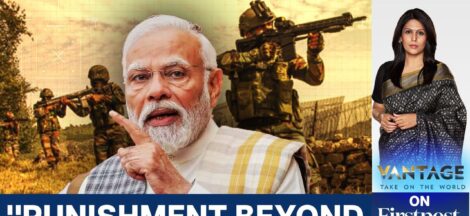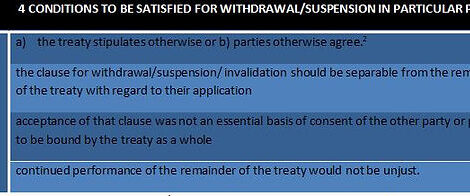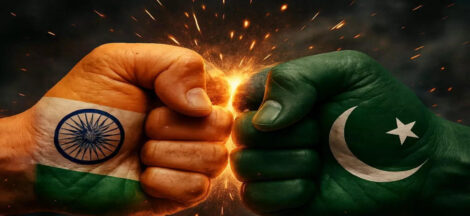Cross-voting by the Congress and Samajwadi Party legislators in Rajya Sabha election has certainly not come as commiseration for the RSS and BJP, precisely for Narendra Modi. Had it been the barometer to show the approving sweep in his favour, Modi surely would not have undertaken a night-long exercise along with other members of the central election committee to finalise only the first list of candidates for the Lok Sabha elections.
The CEC meeting, which was wrapped up just before dawn consuming nearly five hours, has wider implications. Apparently, the cross-voting in UP and Himachal look like legislators expressing their lack of trust in the leadership, or may have been conjured for some material and monetary gains. It will also be naïve to look at the development in the present political scenario through the narrow prism of fracture within opposition ranks. It would also be incorrect to construe that element of horse-trading has played a crucial role.
It ought not to be ignored that the desertion has taken place coinciding with Rahul Gandhi’s Bharat Jodo Nyay Yatra rolling through the lanes and streets of Uttar Pradesh. True enough, Rahul turning more aggressive through his tour in UP and steadily raising the issue of denial of right, deprivation and exploitation of the Dalits, OBCs, EBCs and Minorities and especially to their youth have been the primarily responsible for this reactionary rebellion.
While BJP is determined to win all seats in Uttar Pradesh and other states in the Hindi belt by using saam (persuasion), daam (allurement), dand (coercion), and bhed (creating divisions), Rahul has been striving to set his narrative of their exploitation and denial. This cross-voting brings to the fore the ‘upper caste’ challenge to the INDIA bloc, as much as it underlines the awakening and consolidation of the poor on class lines.
This incident of cross-voting must be seen as an electoral battle between the poor and upper caste-landed gentry in the state. Of course, a big chunk of the upper caste legislators of SP, voted in favour of the party nominee for the Rajya Sabha. However, the fact is the upper-caste party leaders feel that the PDA slogan of Akhilesh and Rahul’s systematic emphasis on depriving the poor of opportunity send out an exclusionary message when it comes to them. Though the upper-caste leaders are not hesitant in expressing their loyalty to the saffron ecosystem, the fact is RSS leadership is scared of this open manifestation. They nurse the lurking fear that their over-enthusiasm may alienate the Dalits, OBCs and EBCs completely from the saffron brigade. They confide that this may prove to be a major setback to their endeavour of bringing these sections under its fold.
The Samajwadi Party might have lost one Rajya Sabha seat due to this cross-voting by seven of its MLAs, but the party sources maintain that it has managed to gain the trust of the Dalits and poor across the state. No doubt this has traumatized the Congress leaders in the state. Of the five constituencies represented by the rebels, two are contiguous with the parliamentary constituencies of Amethi and Raebareli.
The Congress leaders are nervous of the impact it would have on the Congress candidates contesting from these two seats. This time also the family members, in all probability Priyanka Gandhi or Rahul Gandhi would be in fray. Speculations are making the round that Varun Gandhi may replace Rahul. Though both the constituencies have a sizeable population of the SC, the upper caste Brahmins and Rajputs (Thakurs) have a strong grip on the politics. While in Amethi, scheduled castes made up 24.98 per cent of the population, in Rae Bareli SC constitutes 30.3 per cent. This Dalit-dominated area in Awadh has long been the seat of Gandhi family.
Dalits of Awadh nurse a strong sense of alienation towards the upper castes, especially Thakurs, as the latter have not been allowing the former to effectively vote. But with the recent shift of Rahul’s approach towards Dalits, OBCs, EBCs and Muslims, the upper caste is unlikely to create any hindrance. The reason for the SC turning against Congress was primarily of economic nature. Dalits took their revenge for implementation of the SC and ST of 1989 which had destroyed their age-old social systems. It is ironical that most of the damage to the Gandhi family has been inflicted by their close aides, who did not undertake development works and project for them.
After the cross-voting, Akhilesh tried to win over the upper caste people too by saying that the A in his PDA also included agde (forward castes), adivasi (tribals) and aadhiabaadi (women). But it does not appear that his clarification has helped him much. The cross-voters, Manoj Pandey, Rakesh Pandey and Vinod Chaturvedi are Brahmins, Rakesh Pratap Singh and Abhay Singh are Thakurs. Puja Pal belongs to the OBC category, while Ashutosh Maurya is a Dalit. Incidentally, Akhilesh has been projecting Manoj Pandey, party’s chief whip as the Brahmin face of the party.
Certainly not meant to blame Akhilesh, the fact remains that Akhilesh has not properly managed the political affairs of the Samajwadi Party. He along with the upper caste leaders has been in constant touch with BJP leaders, after Rahul raised the issue of Dalit exploitation and the possibility of Congress and SP working out an alliance. BJP leaders confess that he was a natural ally of the party and before joining the SP in 2006, he was the chairman of Raebareli Nagar Palika as a BJP leader.
In Himachal too, the same element of caste played a key role. The royalty was not willing to tolerate a commoner. After continuing to remain a cabinet minister in the Congress government of the state, Vikramaditya Singh, son of former chief minister and a Rajpur icon Veerbhandra Singh, only after the cross-voting came to realise that he and his late father were being humiliated. He resigned as the government has not installed a portrait of his father.
While the upper-caste people are feeling alienated from Congress and SP and are angry with Rahul and Akhilesh, their campaign has also some plus points. The response to Rahul’s Yatra in Moradabad and Agra sent a clear and loud message that Dalits and Muslims, who constitute 35 per cent total population of western UP, are willing to throw their weight behind INDIA bloc. At a small gathering held in Moradabad, Muslims cutting across the social and economic life spectrum, sent a clear message that it was in the interests of the Muslims, precisely for protecting and preserving their identity that they should support the INDIA alliance. (IPA Service)



